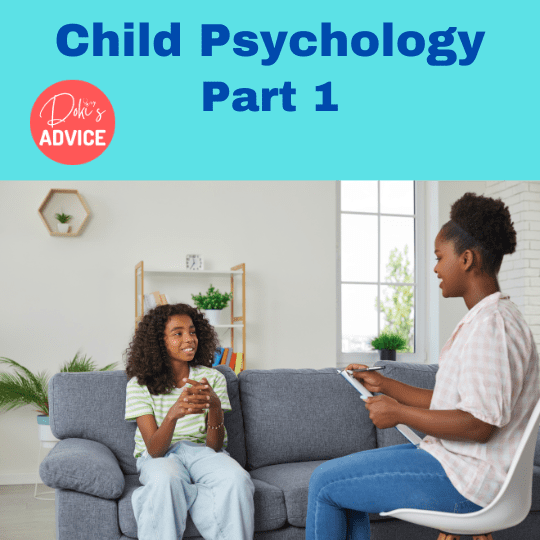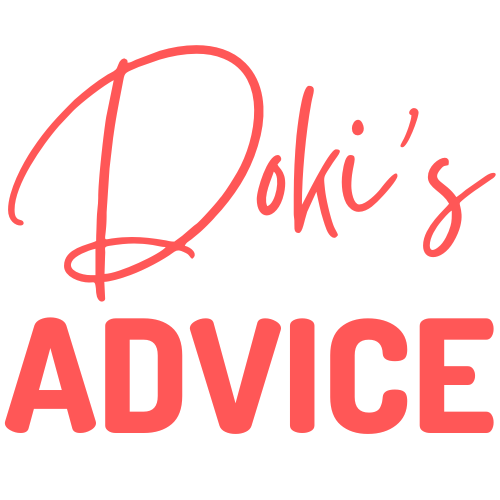Paediatric Psychology 1

In Sub-Sahara Africa, about 9.5% of children and adolescents
are reported to have a psychiatric disorder such as (depression, post-traumatic stress disorder, anxiety)
As the Kenyan population has grown research showed that the estimated ratio of one psychiatrist is to a population of about half a million people, with most psychiatrists practising in the capital, Nairobi.
The World Health Organisation reports that mental health problems affect 10 – 20 % of children and adolescents worldwide. In addition to that half of all mental illness begins by age 14.
Common childhood conditions include:
-
Autism
Autism or autism spectrum disorder is an umbrella or various disorders:
- Classic autism,
- Asperger’s syndrome (AS): Mostly don’t have learning disabilities but some may have learning difficulties, don’t have a delayed Speech, mostly have difficulties with their social skills.
- pervasive developmental disorder (PDD): Mostly applies to children that don’t meet the criteria or either autism or Asperger syndrome.
Condition characterised by:
- difficulties with social interaction and communication,
- repetitive behaviour: like wanting to watch the same movies every day for months and months or playing the same game over and over.
- In Infants: absence or delayed speech, lack of interest in others,
- unprovoked aggression which when not dealt with early can be a major problem in adulthood, don’t engage in pretend play, inability to concentrate,
- atypical behaviours like having challenges transitioning from one activity to another,
- an increased focus on details
- unusual reactions to sensations
- Decreased need for sleep and frequently waking up during the night
- A minority of children may develop good musical, mathematical or visual abilities
- Sensomotoric Symptoms: increased joint laxity, hypotonia, clumsiness, loss of ability to execute or carry out skilled movements or gestures and toe walking. Self-injuries like biting and head banging.
- Have a higher risk of developing seizures by the time they are adults.
Intervention:
- Early and intensive remedial education that address both behavioural and communication disorders.
- Occupational and physical therapy to address specific deficits
- Ongoing counselling and support of parents
Tips for Parents:
- Learn as much as possible about ASD.
- Provide consistent structure and routine for your child.
- Seek professional help for specific concerns.
- Connect with other parents to children with ASD.
General therapy:
- Children who do not yet use words can be helped using alternative communication methods such as sign language, communication boards, picture exchange, and other forms of augmentative communication.
- Applied behavioural analysis (ABA):
E.g.:
Prior: The teacher says “It’s time to clean up your toys” at the end of the day.
Behaviour: The student yells “no!”
Consequence: The teacher removes the toys and says “Okay, toys are all done.”
How could ABA help a child learn a more appropriate behaviour in this situation?
Prior: The teacher says “time to clean up” at the end of the day.
Behaviour: The student is reminded to ask, “Can I have 5 more minutes?”
Consequence: The teacher says, “Of course you can have 5 more minutes!”
With continued practice a child will be able to replace an inappropriate behavior with one that’s more appropriate.
-
Attention deficit/hyperactivity disorder (ADHD):
This is characterised by: impaired attention, hyperactivity, impulsivity or a combination of these symptoms.
Diagnosis criteria:
Impaired attention
often:
- fails to give close attention to details, makes careless mistakes.
- has difficulty sustaining attention in tasks or games.
- does not seem to listen when spoken to directly.
- does not follow through on instructions and fails to finish schoolwork, chores, or duties.
- has difficulty organizing tasks and activities.
- avoids, dislikes, or is reluctant to engage in activities that require mental effort.
- loses things easily.
- easily distracted by external stimuli.
- forgetful in daily activities.
Hyperactivity and impulsivity:
Often:
- fidgets or taps hands or feet, or squirms in a chair.
- cannot stay put in situation that require stillness.
- runs about or climbs in situations where it is inappropriate or complains of restlessness.
- unable to play or engage in leisure activities quietly.
- “On the go” and acting as if “driven by a something”.
- talks excessively.
- gives answers to questions before their completion.
- has difficulty waiting his or her turn.
It’s associated with low rates of high school education and poor peer relationships,
Children who are disruptive and hyperactive are more likely to be identified and diagnosed as opposed to ADHD-children without these behaviours.
ADHD frequently presents with other conditions such as: learning and language disorders, oppositional behaviour, conduct disturbance, anxiety, depression and coordination disorders.
Tips for Parents:
- school intervention like cognitive behaviour therapy (CBT) with a therapist.
– In CBT your thoughts, feelings, physical sensations and actions are deemed connected, and that negative thoughts and feelings can trap you in a never-ending cycle.
-The aim of CBT is to help break down all the overwhelming issues into small parts that one can deal with easily
- behavioural strategies in form of parental management (Triple P/Positive parental programs): this promotes positive parental relationships in order to reduce behavioural problems eg:
- -creating safe and interesting environment for example for their play time
- -Having a positive learning environment: giving an ear when your child is interested in learning something new
- -use assertive discipline: set clear boundaries, rules and consequences, while encouraging/ praising good behaviour
- -Having realistic expectations:
- -taking care of yourselves as parents: like taking time off and getting help from family and friends
- Psychostimulants: this can only be prescribed by your psychiatrist
Intervention:
Behavioural therapy: this enhances motivation using rewards and other consequences and providing models and opportunities for social learning.
-Parental training in behavioural management teaches parents to shape their child’s behaviours with the use of simple behaviour modification and social learning theory like teaching parents how to communicate about their emotions, promoting positive parent-child interaction skills.
3. Oppositional defiant disorder (ODD):
ODD is a diagnosis appropriate only when the below behaviours occur to such a degree that they interfere with academic success, peer relationships, familial relationships, or other major areas of life
Risk factors that can lead to development of ODD:
Children who:
- struggle to regulate their emotions and are prone to emotional outburst have tendencies to later be diagnosed with ODD.
- Have a difficult temperament living in an unstable home.
- Have overly authoritative or permissive parents that create a transactional parent-child cycle.
- Go through maternal aggression.
- Experience inconsistent discipline.
- Have unsafe upbringing environments.
- Undergo prenatal nutritional deficiencies.
Symptoms: over a period of at least 6 months and the cause of these behaviours should not be caused by other factors like trauma or abuse:
- Arguing with adults or authority figure
- Aggression toward peers
- Deliberately annoying others
- Spitefulness
- Vindictiveness
- Being easily annoyed or hostile
Intervention/ tips for parents:
- Parent-child therapy: to help understand why their child is acting out, or how parenting strategies may be contributing to the problems and how to change parenting styles to address a child’s behaviour more effectively. For example:
-praising good and positive behaviour rather than strict punishments for unwanted behaviours
- Collaborative problem-solving: working together to help a child learn how regulate their emotions and help parents to learn how to deal with unmet expectations
- Play-based therapy: parents and children between the age of 2 and 6 years to decrease the occurrence of ODD later.
- Medications: in case of comorbidity e.g., ADHD and ODD (can only be prescribed by a psychiatrist)
4. Conduct Disorder (CD):
Behavioural and emotional disorder characterised by disruptive and breaking societal rules.
Symptoms: behaviour present with 12 months
- Don’t care about feeling or right of other people.
- Enjoy causing harm, lying or manipulation.
- Hurting animals.
- Don’t care about social norms of good behaviour.
- Frequently lying for no reason.
- Stealing for the fun of it.
- Extreme bullies: both emotionally and psychologically.
- Pickings fight, destroying property.
Risk factors:
- Maternal smoking during pregnancy
- Living in poverty
- Living with parents with substance abuse or criminal behaviour
- Exposure to physical or sexual abuse
- Exposure to domestic violence
- Family instability
- Children who experience harsh discipline
- Parents with a cruel or rejecting attitude
-High comorbidity with ADHD or ODD
Tips for parents:
- Giving clear instructions and following through with appropriate consequences when needed.
- Recognizing and praising your child’s good behaviours and positive characters to promote good behaviours.
- Family and individual therapy: which may involve social skills training, parent-child interaction therapy and parent training.
- Getting treatment for one’s own physical and mental health issues, if one suffers from one
*These tips may seem like easy and basic but when dealing with opposition/conduct disorder they don’t come that easy. That means they require routine, practise, and a lot of patience while still showing consistent, unconditional love and acceptance towards your child.
5. Post-traumatic stress disorder (PTSD):
Mental disorder after exposure to traumatic events.
Either:
- Directly experiencing the traumatic event
- Witnessing the event as it occurs to others
- Learning that a traumatic event occur to a parent, caregiver/guardian.
Symptoms:
- Recurrent or distressing memories of traumatic events
- Recurrent distressing dreams where its contents are related to the traumatic event
- Dissociative reactions in which the child feels or acts as if the traumatic event is reoccurring.
- Intense or prolonged distress at exposure to internal or external triggers that resemble aspects of the traumatic event
- Avoidance of activities or places that arouse recollections of traumatic events
- Avoidance of people or conversations that remind of traumatic events
- Reduced interest or participation in activities such as play
- Socially withdrawn behaviours
- Reduction of positive emotions
- Irritable behaviour and anger outbursts sometimes with little or no provocations
- Concentration problems
- Sleep disturbance
- Dissociative symptoms like: Depersonalisation/derealisation: feeling like observing yourself from outside your body
Tips for Parents:
- Creating a feeling of safety for your child
- Helping your child speak about his / her feelings and experiences directly or through art or play
- Teaching your child coping and relaxation mechanism
- Reduce external triggers where possible
- Individual and family therapy to help your child cope with stressors and assist you to help your child.
Disclaimer: Always seek medical attention before beginning any new medications for your child or as soon as you notice any symptoms within the span of 6 months.
For more keep it Doki’s Advice….

